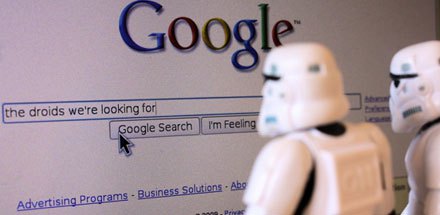Here is an article from theguardian about whether it is worth learning mostly anything since a great deal of information can be looked up online.....or can it?
Economist Seth Stephens-Davidowitz recently noted that one of the most common Google searches containing “my penis” was “how long is my penis?” Luddites might say a ruler would have a better answer than Google, but that’s not how digital natives think. Why should we figure out anything for ourselves, when everything is so easy to look up?
It’s a good question, one I confront in my book Head in the Cloud. I ran surveys of public knowledge in Britain and the US, on topics ranging from pop culture to quantum physics. In many regards the public is ill-informed. More than 50% of those under 30 can’t name the largest ocean on Earth, the palace built by Louis XIV, or the first artificial satellite; don’t know who invented the telegraph, radio or phonograph or which Roman emperor was said to have fiddled while Rome burned.
Does knowledge matter any more? There’s a decent case that it doesn’t. In the 1950s economist Anthony Downs coined the concept of rational ignorance. In many situations, Downs observed, learning isn’t worth the bother. Most of us don’t learn car repair or medicine or accounting. Instead, we consult professionals when such expertise is needed – and that’s perfectly reasonable.
Today, we’re outsourcing memory and knowledge to the internet. This is often a good thing, but it comes with a drawback. The cloud is making us meta-ignorant: unaware of what we don’t know.
Each day we make hundreds of small decisions and judgments: what to eat, buy, or do; what to think about the latest film, trend and politician. Rarely are these assessments important enough to justify looking up facts. We make snap judgments in a state of rational ignorance, based on facts already in our heads.
I found that there are correlations between general knowledge and behaviour, political views and even socially responsible choices. One dilemma I posed was: would you throw your pet off a cliff for £1 million?
About 7% of the British public said yes. But the percentage was double that among those who scored poorly on a quiz of general knowledge. The less informed are either greedier or less kind to animals.
In the same survey, those who didn’t know which document King John signed in 1215 were far more likely to say that people should be able to smoke in pubs. Those who can’t name their MP tend to say it’s OK for a business to post fake online reviews under a false name. Those who believe that early humans coexisted with dinosaurs are more likely to refuse to vaccinate their children for measles, mumps, and rubella.
These findings challenge the easy assumption that you can always look up the facts you need. Anti-vaccine parents do look up articles on the internet. It appears they are unable to distinguish valid medical advice from pseudoscientific nonsense drawing on paranoia, urban legends and conspiracy theorising.
Hence the survey’s finding: people who can’t answer an easy question about dinosaurs have a poor grounding in science and are ill-prepared to form good opinions about medical controversies, even with the internet to assist them. Unfortunately a “general background” in science or anything else isn’t something you can look up on a lunch break. It’s acquired through lifelong learning.
Knowledge is not wisdom, but it is a prerequisite for wisdom – and that’s one thing the digital revolution hasn’t changed.


Comments
Post a Comment